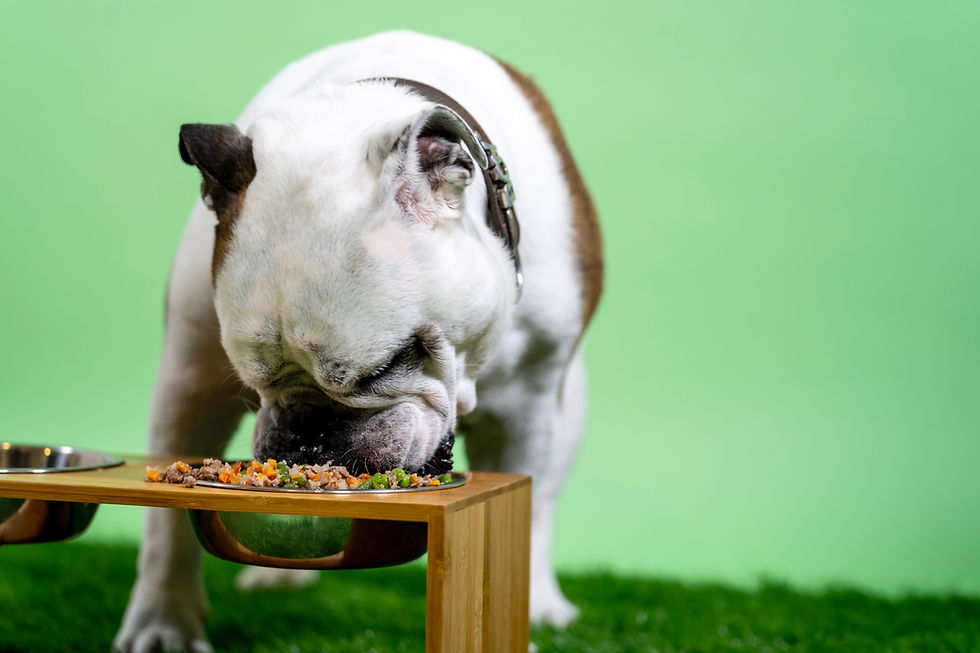10 Best Dog Breeds for Kids!
- Amanda Anderson - K9 Hydrotherapist

- Jan 27, 2024
- 3 min read
Choosing the right dog breed for families with children involves considering several factors such as temperament, size, energy level, and tolerance. Choosing the breed or mix breed that is suitable for your child involves several important considerations to ensure a harmonious and safe relationship between the child and the dog.
Here are some key reasons to consider:
Temperament:
Different dog breeds have distinct temperaments. Consider breeds known for being patient, gentle, and good with children. Researching and understanding breed characteristics can help you find a dog that matches your child's energy level and temperament.
Size:
The size of the dog matters, especially when it comes to interacting with children. A small dog might be more suitable for a family with young children to avoid accidental injuries or incidents.
Energy Level:
Consider the energy level of the dog and whether it matches the activity level of your family. Some breeds require more exercise and playtime, while others are more laid-back.
Tolerance and Patience:
Look for breeds known for their tolerance and patience, as children may not always understand how to interact appropriately with a dog. Dogs with a gentle disposition are often better suited for families with kids.
Trainability:
Opt for a dog breed that is known for being trainable and adaptable. This makes it easier to teach the dog appropriate behaviours and manners, enhancing the overall relationship with children.
Allergies:
Consider any allergies within the family. Some breeds, such as Poodles and Bichon Frises, are known for being hypoallergenic, making them suitable for families with allergies.
Space:
Consider the living space available. Some breeds, even small ones, may need lots of space to move around and play. Ensure that your home can accommodate the needs of the chosen breed.
Age of the Children:
Take into account the age of your children. Some breeds are more patient and tolerant of the unpredictable behaviours of younger children, while others may be better suited for families with older kids.
Socialisation:
Socialisation is crucial for any dog, but especially for those around children. Choose a breed that is known for being sociable and can be introduced to various environments and experiences.
Lifestyle:
Assess your family's lifestyle. Some breeds may require more time, attention, and exercise than others. Choose a dog that aligns with your family's daily routine and activities.
Remember that individual dogs may have unique personalities regardless of their breed, and proper training and socialisation play significant roles in a dog's behaviour. If adopting, spend time interacting with the dog before making a decision, and consider seeking advice from breeders or rescue organizations to find a good match for your family.
Here are 10 good dog breeds for children and why we think they are often well-suited for family life:
Golden Retriever:
Known for their friendly and gentle nature, Golden Retrievers are patient and reliable, making them excellent companions for children. They are also highly trainable and eager to please.

Labradors
Labradors are known for their friendly demeanour and playful nature. They are social, and outgoing, and have a high tolerance for the energy and enthusiasm of children.

Beagle:
Beagles are small to medium-sized dogs with friendly and curious personalities. They often get along well with children and have a moderate energy level that suits family life.

Bulldog:
Bulldogs are known for their calm and gentle demeanour. They form strong bonds with their families and are typically good with children, especially due to their laid-back nature.

Collie:
Collies are known for their intelligence and gentle disposition. They are often protective of their family members and have a patient nature, making them suitable for households with children.

Cavalier King Charles Spaniel:
These small and affectionate dogs are known for their friendly and gentle nature. They typically get along well with children and are adaptable to various living situations.

Boxer:
Boxers are energetic and playful, making them great companions for active families. They are also known for their affectionate and loyal nature.

Poodle:
Poodles come in various sizes, and they are known for their intelligence and hypoallergenic coat. They are often good with children and can adapt well to family life.

Shetland Sheepdog:
Shelties are known for their intelligence and willingness to please. They are often good with children and can be protective of their family members.

Newfoundland:
Newfoundlands are large, gentle giants known for their calm and patient temperament. They are often great with children and can be protective while remaining gentle.

It's important to note that individual dogs may vary in temperament, regardless of breed. Proper socialisation, training, and supervision are crucial for ensuring a positive relationship between dogs and children. Additionally, adopting from reputable breeders or rescue organizations can contribute to finding a well-suited family companion. If you need support in introducing your child to a new dog, just give us a call on 050 8717 072.




Comments